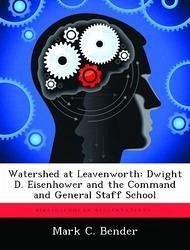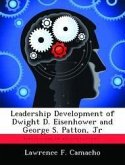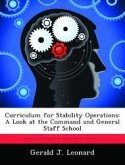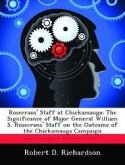This study is a historical analysis of Dwight Eisenhower's experience as a student at the 1925-26 Command and General Staff School at Fort Leavenworth, Kansas. The study develops several themes of Eisenhower's life -competitiveness, individualism, use of others' talents, and problem-solving ability -and shows how they came into play during the year at Leavenworth. The study explores Eisenhower's preparation for the course, the extreme lengths which were required to gain him entrance, his motivation for excellence, his methods of study, his selection as honor graduate, and how the course prepared him for his future. The study explores the 100 years of development of the School prior to Eisenhower's attendance, with emphasis on the course and "the Leavenworth experience" as it existed for the school-year 1925-26. The study investigates Eisenhower's relationship with his mentor General Fox Conner, the degree of competitiveness existing at the School in 1925-26, School doctrine and curriculum, and the living environment at Fort Leavenworth. The work explores Eisenhower's "partnership" study method with classmate Leonard Gerow, his use of George S. Patton's notes during the course, and the influence of School Commandant Edward L. King on the class. Eisenhower's prior duty and assignments and extensive preparation were pivotal in his success, as was his high motivation to do well in the course. Despite supposedly anonymous class standings during the course, Eisenhower likely knew of his standing because of his close associations with instructors who were running a 'pool' on who would finish first. This knowledge may have spurred Eisenhower's especially strong finish -although it did not interfere with his practicing the game he discovered at Leavenworth -golf. The study corrects several factual errors perpetuated by biographers, while seeking to discern the reasons Ike would one day refer to his year at Leavenworth as "a watershed in my life."








